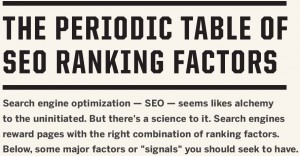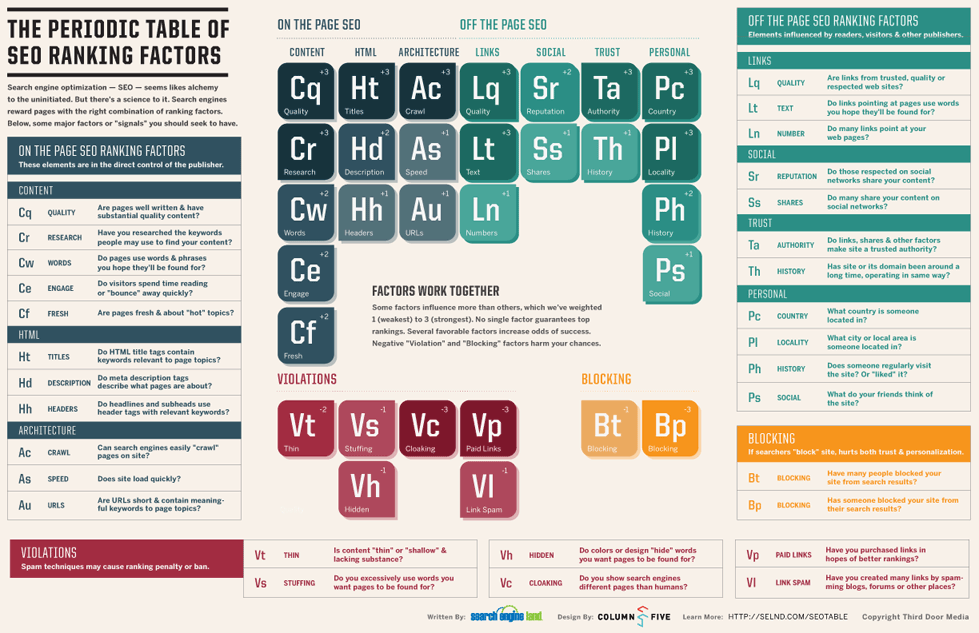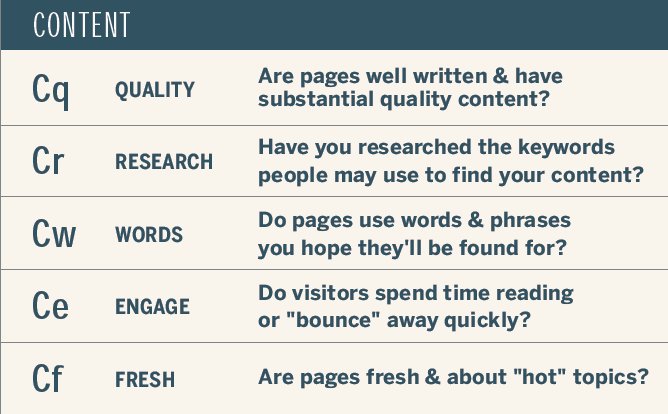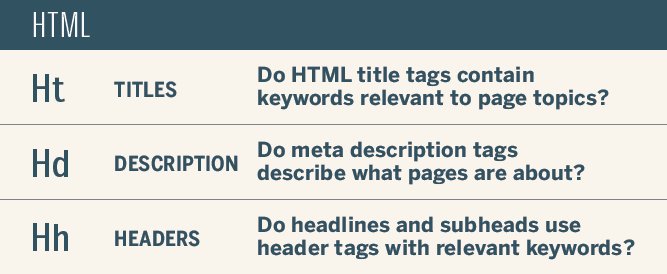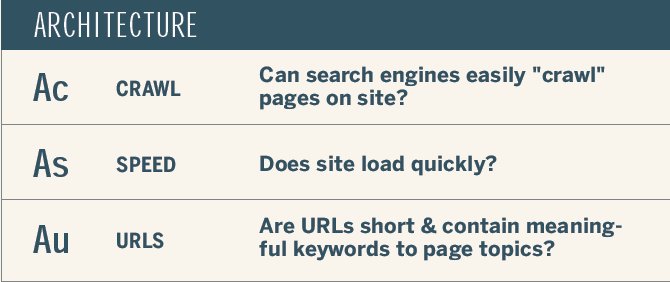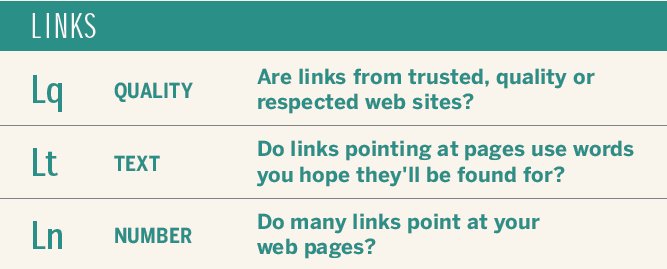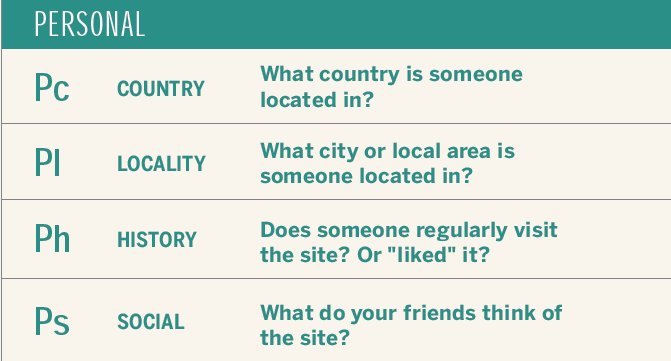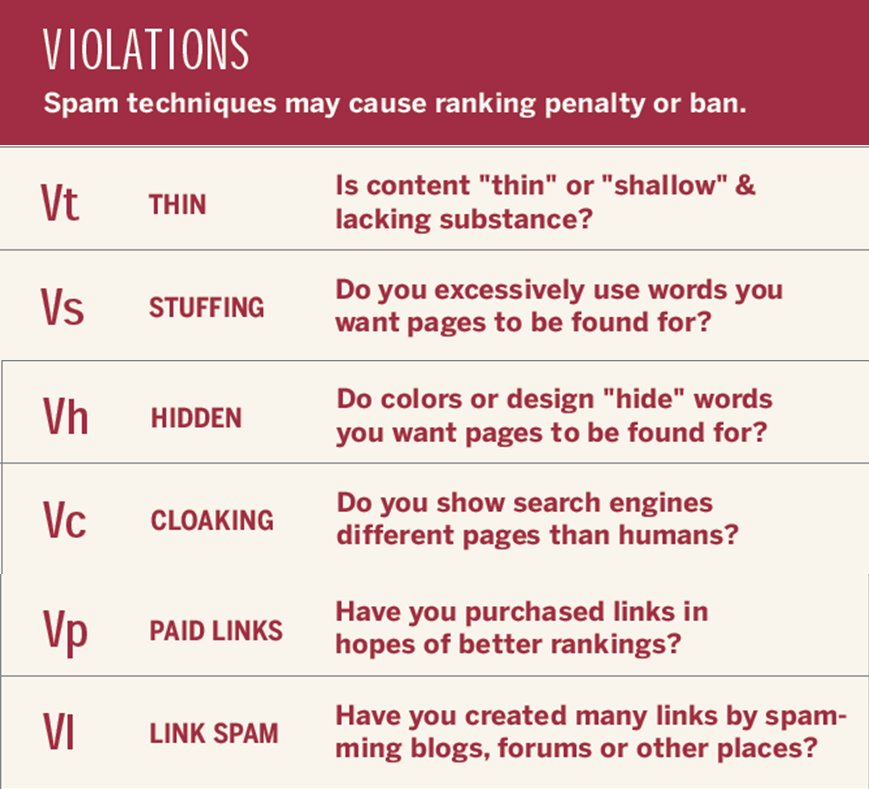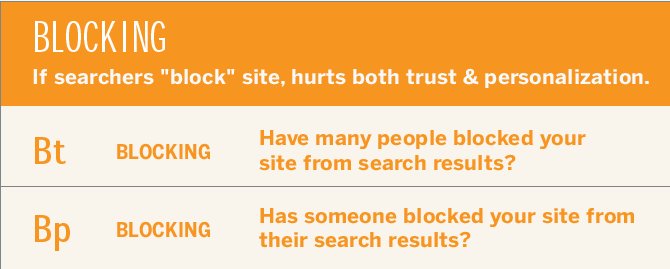SEO Ranking Factors 2011 in Periodic Table Form
If you don’t already know, Search Engine Land has published their own version of SEO Ranking Factors of 2011 in periodic table form. It’s pretty interesting and is quite different from SEOmoz’s Search Engine Factors of 2011 in terms of design and detail.
Just so you know, this periodic table is meant to be general. It was purposed for SEOs in general to see the big picture about the current ranking factors as of today. Not all SEOs appreciate to be very detailed and specific with their work. Some SEOs just like to do what needs to be done and see what happens.
So without further ado, here it is:
It’s not so hard to understand, really. As you could read the complete infographic on the sides and below. It’s a really good compilation and I should say a mighty well job to Search Engine Land!
The four major groups of SEO Ranking factors in this periodic table is composed of:
- On-Page Ranking Factors
- Off-Page Ranking Factors
- Violations
- Blocking
I like the fact that they did include some of the no-no’s of SEO in this periodic table. It makes it easier for beginner SEOs to understand what they shouldn’t try to mingle with.
The On-Page SEO Ranking Factors deal with Content, HTML and Architecture which are the rave for On-Page Optimization today if you don’t already know. SEOs have evolved their work from just SEO to, as Rand Fishkin says, a “Web Strategist”.
The Off-Page SEO Ranking Factors deal with Links, Social, Trust, and Personal – which are pretty interesting factors. Right now Off-Page optimization has evolved from links, links and links to other, more complicated metrics. Social makes the list of course, as the rise of Facebook and Twitter change and impact the web like never before. Social Signals are definitely now a part of Off-Page SEO. Which pushes SEOs to be Social Network Marketers too.
Violations make the periodic table interesting. It highlights some well-known and widely used black-hat SEO techniques. As well as acquiring paid links. The list includes Thin Content/ Shallow Content, Keyword Stuffing, Cloaking, Paid Links, Link Spam and Hidden Keywords.
Blocking might be something you would be interested about. It talks about having a negative impact on your rankings if people block you. Well if you’re blocked by a certain individual, you can be sure that you’re gone from his SERP but that’s okay coz that’s just one person – that’s where Trust Blocking comes in. If you’re blocked by a lot of other individuals then it might mean that you’re really not something that should be there in the search results anyway. Penalty.
Content Ranking Factor
If you noticed, the periodic table started with content. Because that’s usually where it all starts – you really have to have good, solid content. But it’s not enough because a lot of people on the web have a lot of amazing stuff in their websites too. It’s interesting what Search Engine Land says about content. It focuses on:
- Content Quality: Are you producing content beyond just content? Do you engage your users? Do you offer something unique? Useful? Funny perhaps?
- Content / Keyword Research: Are you using the right keywords for your webpage? Will people really look for those keywords?
- Content Words / Keywords usage: Using your keywords as much as is necessary won’t hurt. Just don’t overdo it. People do notice, y’know.
- Content Engagement: Does your content really catch the user’s attention? Does the user bounce back when he/she clicks on your website in the SERP?
- Content Freshness: Is your content up with the current trends / events? When your content suddenly gets lots of hits because of the freshness of your work, you get a boost in your content freshness score.
Search Engine Land Defines these factors in a more thorough detail in the Content Guide of their SEO Periodic Table.
HTML Ranking Factor
Codes, codes, codes. It doesn’t have to be too complicated. But hey, nothing’s too simple nowadays. Thank God the HTML part of the periodic table is cut out to just 3 main elements, namely:
- HTML Title Tag: Do you have a proper descriptive title (preferably with your keyword in it)
- Meta Description Tag: Will searchers find a good description of your site in the SERP snippet?
- Header Tags: Are you using user-engaging headlines in proper places and in moderation?
You can find out what they have to say about these three HTML factors in the HTML Guide of their SEO Periodic Table.
Architecture Ranking Factor
A site’s architecture has never been so important as it is now. How you lay out your site from its:
- Crawlability: Usually a sitemap is the answer to this
- Site Load Speed: People naturally dislike slow-loading sites. I know I do. Make the web a better place by making your site load faster.
- Descriptive URLs: Does your URLs include what your webpage is about in itself?
- Number of Ads Embedded in your website: I think this is also an factor albeit it might be of less magnitude
These things are further elaborated in their Site Architecture Guide of their SEO Periodic Table.
Links Ranking Factor
Who wouldn’t agree? Links make up the navigation and referral system of the entire web. As a ranking factor, Links would of course be included. How do you deal with:
- Link Quality: Would you trust this link enough to click on it?
- Link Text / Anchor Text: About the only direct description your link has on it. Make sure it’s relevant to what it’s pointing to.
- Number of Links: The more, the merrier isn’t always true. But it always shows who has more eggs – especially in the internet.
More about Link Factors in the Links Section Guide of the SEO Periodic Table.
Social Media Factor
Social is getting bigger and bigger. Facebook is number 2, Youtube on number 3 and Twitter is… Well, it’s there. And right now Google is using every possible metric it could from these social networks to determine authority, authenticity and trust in websites. Google now uses Facebook shares and Twitter authority tweets for social signals. Social has revolutionized search like never before.
- Social Reputation: Not all social network accounts are ranked as the same. Some have more authority than others in their own metrics. Authentic social accounts which have built their own authority in the network is one factor to look out for.
- Social Shares: Getting more of your stuff being shared or tweeted or Google +1’d around is always a good thing. It means people like you. And if people like you, chances are search engines will to.
More about Social Factors in the Social media Ranking Factors Guide of the SEO Periodic Table
Trust Ranking Factor
Just how would you define trust in the search engines and the web? We could only guess – there are probably a lot of “trust and authority” signals that the search engines look for to determine your site’s trust and authority.
- Authority: Will your site be considered an authority in its niche in the offline world? Do people really go to your website for the help they need in what you’re discussing?
- History: Has your website behaved badly before? Accumulating lots of links in a short span of time can be detected easily. What I’m trying to say is – the behavior of a website can be tracked easily as search engines keeps its own history of your website. This is why domain age matters.
More information about this in the Trust Ranking Factor Guide of the SEO Periodic Table
Personalization Ranking Factor
Not so long ago, the web was a place for the general public. Everyone sees the same stuff on the search engine results page – on Google, Yahoo and Bing. Now it’s different. The web has become a more personal place with the entrance of social networks, personal accounts, personal search, search history, basically web 2.0.
- Country: Now where you are matters. Search engines know where you are. They can determine your location and display results as they think is relevant to your country.
- City / Locality: It gets even more personal as the search engines zoom in to determine what city or locality you’re in. Businesses can now work their SEO campaigns to revolve in just one city / locality where they sell their products / services.
- Personal History: This is where the search engines become creepy – everything you do, everything you ‘Like’, everything you visit. It stalks you. Don’t worry, it’s for a good purpose (at least I’d like to think so) – to know what results it would cough up the next time you make a search.
- Personal Social Connections: What do your friends and circle of connections think about a particular website? Now what your friends and social network contacts think, matters.
Know more about Personalization in the SEO Periodic Table Personalization Factors Guide
Search Engine Violations and Penalties
You’ve had the positive ranking factors, now we’re moving on to the negative and what to avoid. Knowing these factors could help you avoid them. Don’t tell me I didn’t warn you.
- Thin / Shallow Content: The Google Kung-Fu Panda update did give a lot of websites ‘inner peace’ by karate chopping websites with thin content. There’s lots of content in the web and most of them don’t even care about readers. These content are satisfied just by ‘existing’ and being there so they could fetch the webmaster some rankings and search engine hits. Well now, it’s not enough. In fact, it will get you karate kicked off the SERPs.
- Keyword Stuffing: Perhaps one of the most common offenses people make. The mindset shouldn’t be ‘more keywords, more glory’ because it won’t take you anywhere. Typing in lots of your keywords in a way that makes no sense will get you nothing but slaps from Google.
- Hidden Text: Of course if you’re mindful about your readers and visitors, you wouldn’t want them to see all the keywords you’ve stuffed in your website so you’ll probably want to hide it. White font on white background? Perfect! Except Google can see right through you. For goodness’ sake – DON’T DO IT. Just don’t.
- Cloaking: Now this is where it gets more technical. Trying to show people a good-looking page that makes sense while showing the search engines a different page – one that you think would take you higher up the ranks. Just won’t work. This is probably one of the worst things you could do to your site.
- Paid Links: Google says don’t do it. I’m not stopping you. If you could get away with it, then best of luck to you. As for me, I won’t even try.
- Link Spam: If you want to try your luck using automated software that automatically sends out blog comments in attempt to get you lots of links, I’m telling you that you’re not doing anyone a favor – even yourself. It just won’t work. And you’re even giving us SEO specialists a bad name. Don’t even try to call yourself an SEO. As Search Engine Land states it, you’re “doing the internet equivalent of peeing on everything you see, to mark your territory.”
These things are further elaborated in the Violations Guide of the SEO Periodic Table
Blocking
It wasn’t such a big thing. Started off as a personal action for personal experience. Now blocking search results has been included as a ranking factor.
- Personal Blocking: Don’t like a search result? Block it out. You are your own personal spam police. You’ve been given that privilege. Use it wisely.
- Trust Blocking: Getting blocked by one or two people won’t hurt. But if lots of people start blocking you off, something must be wrong in your site! This will tip off Google into giving you some attention – and no you shouldn’t be happy about it. See if one person is telling you something, it’s an opinion. But if a lot of people are saying the same thing, then perhaps it’s time to consider it a fact.
Know more about this in the Blocking Guide of the SEO Periodic Table
All in all, these things are the things to keep in mind thus far this 2011. If anyone says otherwise, just go back to this periodic table and determine for yourself which makes better sense.
Tips for Keeps: Stick with these Ranking Factors and work on your website keeping these things in mind. This is a really good guide. I recommend it.
If you’re looking for SEOMoz’s take on Search Engine Ranking Factors of 2011, here it is:
